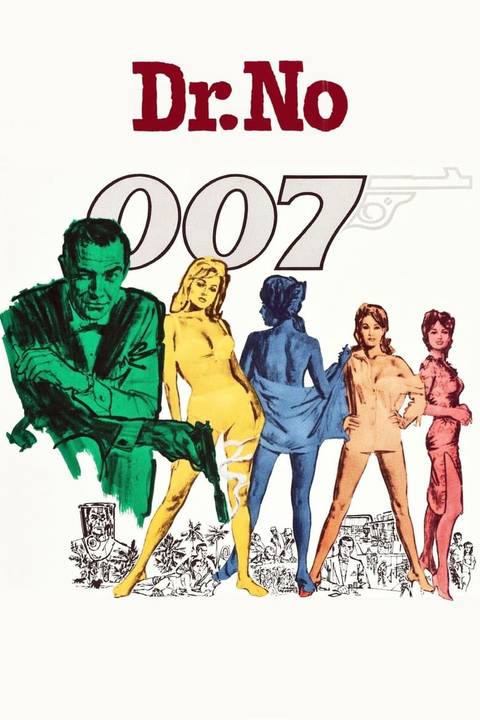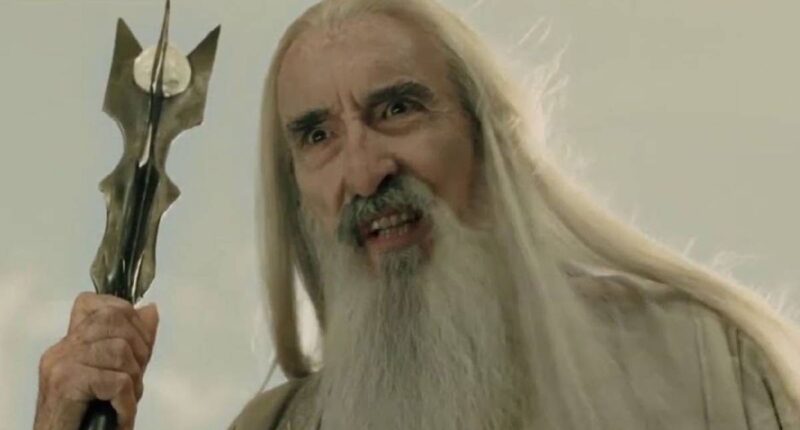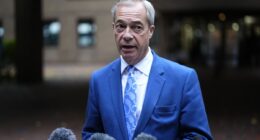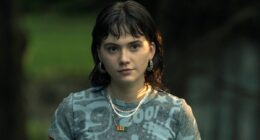Sir Christopher Lee is one of the most fascinating characters in film history. The man was not only a legendary actor, but also lived a life that could easily become a big-screen epic. He came from a noble lineage, served in the British army during World War II, worked for British intelligence as a Nazi hunter shortly after, became an accomplished stage and screen actor, started a heavy metal project… He was a true powerhouse, and, recently, his fans have developed a theory that, as if his life weren’t incredible enough, he might also have influenced the creation of cinema’s most famous spy, James Bond.
For decades, the true inspiration of who inspired author Ian Fleming to create 007 has been a mystery for the spy’s fans. With the internet continuously making more information available to fans, though, recently, people have started connecting some dots and concluded that Christopher Lee may be who James Bond is actually based on. That’s because Lee and Fleming were actually closer than people knew, and held each other in deep admiration — perhaps enough for one to create an incredible character like Bond based on the other.
Christopher Lee and Ian Fleming Were Step-Cousins
It’s always interesting to notice how life tends to bring great individuals together. Christopher Lee himself, for example, has always been the only person to have ever worked on an adaptation of The Lord of the Rings to have met J.R.R. Tolkien himself, and that’s no small thing. With Ian Fleming, however, Lee had a different kind of bond (no pun intended), as they were step-cousins. In 1930, when Lee was eight years old, his mother, Contessa Estelle Maria Carandini di Sarzano, married Harcourt George St. Croix Rose, whose sister, Evelyn St. Croix Fleming, was Ian Fleming’s mother, so Lee and Fleming grew up as family.
With the start of World War II, both cousins joined the fight. Fleming operated as an officer in the Naval Intelligence Division, so he didn’t exactly fight on the front lines. Still, his service during the war is where most of his experience and inspiration came from when conceiving James Bond as a character. Christopher Lee, however, had a much more hands-on role in the war, going so far as operating behind enemy lines as an intelligence officer and liaison (or, simply put, as a spy) and, later, became part of a Nazi hunting team in the final years of his service to the Special Forces, according to his autobiography. So, between the two of them, Lee is undoubtedly the one whose trajectory is the most similar to what people usually associate James Bond with.
Considering their family ties and past in the military, it’s natural that Lee and Fleming would become close friends. They remained so until Fleming’s death in 1964. Lee would famously say that he knew the character of James Bond better than anyone, because he and Fleming would often talk about the stories and the characters. Unfortunately, neither Lee nor Fleming ever talked about whether the former was really an inspiration behind Bond, but it’s hard to imagine that there wasn’t perhaps even a little influence on Fleming’s writing of the character. Until any official information is unearthed, however, Lee will forever be associated with one of Bond’s villains.
Lee Later Starred as the Villain in One of the James Bond Films
The theory that Christopher Lee inspired Ian Fleming to create James Bond is pretty strong on the internet, despite the lack of evidence in this sense. What is known, however, is that Fleming wanted Lee to play not Bond, but the main villain role in the very first 007 film. The two of them were regular golfing partners, and, as Lee told Total Film in 2005, Fleming offered him the role of Dr. Julius No in 1962’s Dr. No. Lee immediately accepted, but when Fleming finally had the opportunity to tell the producers about it, they had already cast Joseph Wiseman. Still, as Lee would later claim, “The character of Dr. No was written with me in mind, or so Ian told me.”
Fortunately, that wasn’t Christopher Lee’s final opportunity to be a part of a Bond film. More than a decade later, in 1974, he starred in The Man with the Golden Gun as the main villain, Francisco Scaramanga. For that one, however, Lee wasn’t the first choice. The role of Scaramanga was originally offered to Jack Palance, who turned it down. Although the film itself may not be remembered among the best in the franchise, Lee’s portrayal of Scaramanga is one of its redeeming qualities. Lee himself admitted to The Times that he thought Fleming “knew that the wells of his imagination were beginning to run a bit dry” when he wrote the original novel, and that he developed the film version “a little bit like Bond himself, a counter-Bond if you like, instead of the murderous, unappetizing thug of the novel.”
Unfortunately, as Lee noted, Ian Fleming didn’t get to see his cousin playing one of his characters on the big screen. He died in 1964 from complications of heart disease; The Man with the Golden Gun novel itself was published posthumously the following year. Lee, however, enjoyed playing Scaramanga in the movie, claiming it “was a marvelous role,” and that he “had great fun making it” with director Guy Hamilton. The fact remains that, in the end, the James Bond franchise was better for having Christopher Lee play Francisco Scaramanga and not Bond himself, and, having been as close to Ian Fleming as he was, Lee certainly knew what he was doing.
James Bond Is a Composite of Many Influences
Although it’s certainly fun to theorize, Ian Fleming never made any objective statements about who James Bond was based on. Christopher Lee might have been an influence, but it doesn’t necessarily mean the whole character was created around him. It’s often said that Fleming gave Bond many of his own tastes and traits, for example, and that even Sean Connery‘s portrayal of the character influenced the author. The name itself famously came from a British ornithologist living in Jamaica, because, at the time, Fleming wanted the character to be “dull.” So the author had no issue with making character-building and storytelling decisions as he went along, which makes it all the more difficult to pinpoint exact influences.
Fleming once said that Bond “was a compound of all the secret agents and commando types I met during the war,” so there are many real-life inspirations behind the character, and, apparently, none of them was Christopher Lee — at least there is no confirmation about it. More suitable candidates include the author’s own brother, Peter Fleming, who is said to have been the typical Bond-type and also worked as a spy during the war. Serbian triple agent Dusko Popov was another influence, having met Fleming during the war in circumstances that inspired Casino Royale. Other likely influences include British secret agents Conrad O’Brien-Ffrench, Patrick Dalzel-Job, Michael Mason, and Wilfred “Biffy” Dunderdale, as noted by The Times back in 2008.
As to who Fleming originally wanted to play Bond in his films, Christopher Lee himself once acknowledged that it wasn’t him, as he said in 2005, revealing that the author wanted James Mason for the role. “He had all the right qualities,” said Lee, although David Niven is also frequently mentioned. So, unfortunately, as nice as it would have been to see Lee playing Bond, it really doesn’t seem like it was ever meant for him. Given how close they were, it seems like Lee would know if there was a little of himself in the character, and there are many other more likely influences. This doesn’t change how accomplished Lee was as an artist and individual, and it doesn’t look like there will be anyone as remarkable as him in the business any time soon.
Dr. No is available to stream on Prime Video in the U.S.

- Release Date
-
October 7, 1962
- Runtime
-
110 minutes
- Director
-
Terence Young
- Writers
-
Ian Fleming, Berkely Mather, Johanna Harwood, Richard Maibaum
- Producers
-
Harry Saltzman









